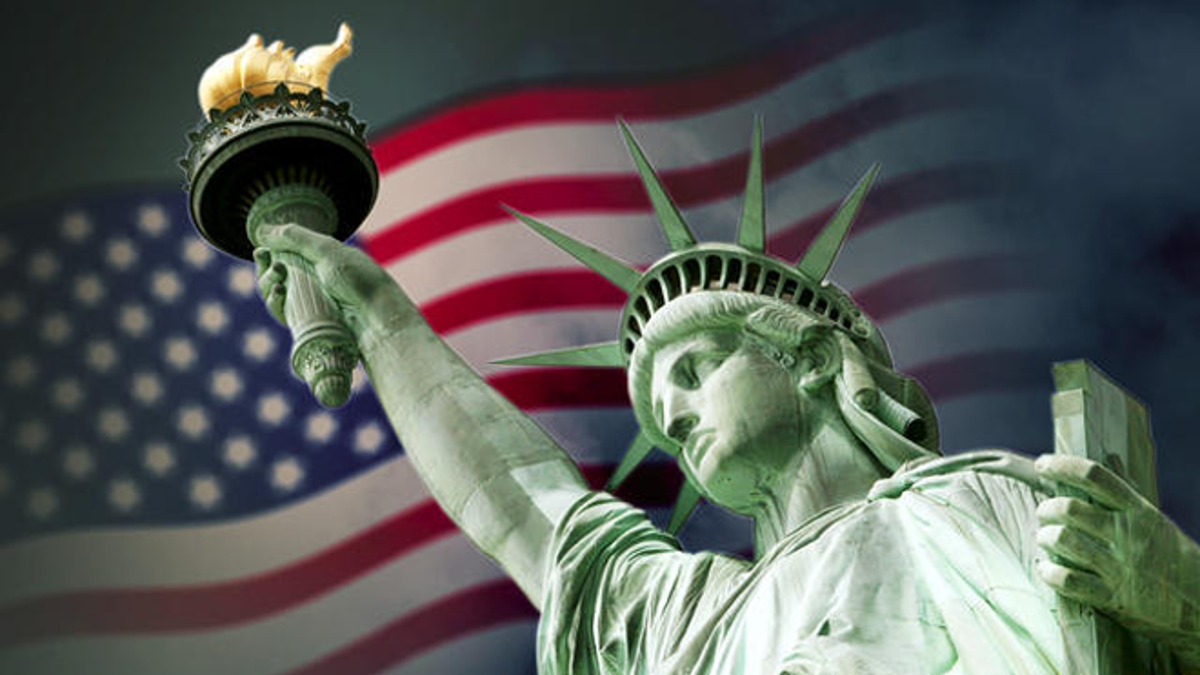
(AP)
The United States of America is now called many things by many people, but on July 4, 1776, it was a child of the Enlightenment, when reason joined with faith to change the course of human history. As a physicist and a Christian, I resonate with such a nation and am enormously grateful to call it home.
In the enlightened Western world of the 17th and 18th centuries, faith and reason were at the center of two revolutionary upheavals. Scores of brave Puritans were fleeing England to the New World in search of religious freedom, even as a handful of similarly devout natural philosophers – among them, Francis Bacon, Galileo Galilei, and Isaac Newton – were formulating a brilliant recipe for systematically obtaining a rational understanding of the Bible’s rational God and His creation.
Ultimately, in the minds and deeds of American colonial leaders such as John Adams, James Madison, Benjamin Franklin, and Thomas Jefferson, the two upheavals came together sublimely. We see evidence of it in the uplifting coexistence of faith- and science-based concepts etched into the Declaration of Independence and U.S. Constitution – for example, in the phrase “… the Laws of Nature and of Nature's God …”
Newton’s revelatory Third Law of Mechanics – i.e., for every action there is an equal and opposite reaction – is said to have inspired Madison’s concept of “checks and balances.” Moreover, explains Jonathan Turley, George Washington University’s renowned legal scholar: “Adams cited the gravitational pull of orbiting bodies and Newton’s Third Law to argue for a bicameral legislature over Franklin’s suggestion of a unicameral legislature.”
This exquisite confluence of faith and reason written into the DNA of the United States has played out in my own life, which started in East Los Angeles. My dad and two grandfathers were Pentecostal ministers, so my family tended to assume I’d follow in their footsteps. How wrong they were!
As a young man, I repudiated my religious upbringing in favor of becoming a scientist, a dream of mine since second grade. By the time I matriculated to Cornell to pursue my graduate studies, God was nowhere on my radar screen. In fact, back then I was so single-minded that, when I was dating a young woman named Laurel (who would become my wife), I told her point-blank that even she would always play second fiddle to science.
Years into my graduate work, I discovered that science alone had no intellectually satisfying answers to my penetrating questions about the thoroughgoing beauty of the universe. I began seeking answers elsewhere – first in Judaism, Hinduism, Buddhism, and Transcendental Meditation, then, at Laurel’s urging and ever so reluctantly, in Christianity, which I felt had nothing new or interesting to teach me.
I was wrong.
To my everlasting surprise, the major truths espoused in the New Testament about the universe and life were entirely companionable with the truths I’d been learning during my training as a scientist. Inevitably, disagreements do crop up between our interpretations of scientific and Scriptural evidence – and the impassioned disputes they inspire steal the spotlight – but science and the Bible themselves are like a powerfully married couple, as demonstrated in our nation’s founding documents.
Today the Old World has greatly abandoned faith in favor of reason; countries such as England are now deeply secular. The United States, I worry, is in danger of following suit. But for now, there’s cause to celebrate on this Fourth of July. For we are still an independent-minded country that cherishes unalienable rights from our Creator that protect both mind and spirit. A nation, a brilliant social experiment, still faithful to its enlightened roots.
